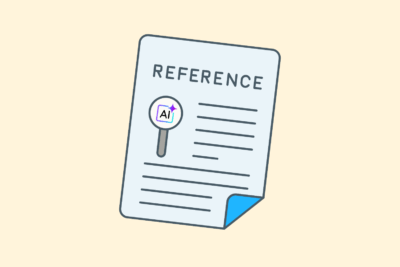AI for structured data generation

Structured data plays an important role in how search engines understand and display content. Adding it manually is time-consuming, error-prone and difficult to scale. AI offers a solution here.By automatically generating structured markup with your content in mind, the process becomes more efficient and consistent.
Why is AI for structured data essential?
Structured data tells exactly what a page is about, what parts are important and how they relate to each other. Google uses this information for such things as:
- Showing rich results in the SERP
- Linking entities to existing knowledge structures
- Better classification of content at the page level
Without structured data, your content is dependent on interpretation. With structured data, you actively help steer how your page is understood.
What does AI add to structured data?
AI systems, especially large language models (LLMs), can analyze text, recognize entities and structure information according to the schema.org model. As a result, they automatically recognize which type of markup is relevant (e.g., Article, FAQPage, LocalBusiness). You can also convert content snippets to JSON-LD structure and provide custom markup to multiple pages simultaneously. (1)
AI is especially valuable for larger Web sites or projects with lots of dynamic content. By automating the output, you keep more time for control and adjustment.
What are ways to leverage AI for structured data?
There are several workflows you can use to integrate AI into structured data generation:
- Prompt-based approach.
You enter content or parts of a page with a clear instruction (e.g., “Generate Article schema.org markup for this blog text”) and AI delivers the JSON-LD code. - Integration into CMS or content process
AI is linked to your backend or content editor so that structured data is automatically generated when a page is published. - Bulk processing with spreadsheet + AI scripting
Using tools such as Google Sheets in combination with a language model via API to generate structured data for multiple URLs simultaneously.
These methods are adaptable AND they are suitable for a variety of situations. Be sure to check them carefully. (2)
Getting started with SEO? Feel free to get in touch.

What are practical examples of AI in structured data?
In my projects, I see that AI becomes especially valuable once you need to markup hundreds or thousands of pages.
At a content platform, we deployed AI to automatically generate Article and FAQPage schedules. As a result, all new articles received rich search results immediately after publication, with no additional work for editors. The time savings amounted to over 20 hours per month, and the margin of error in manual entry disappeared completely. (3)
What are concerns with automatic markup?
Automation brings speed, but it also requires vigilance. You do need to pay close attention to using Google’s Rich Results Test and Schema.org Validator to check output for errors and compatibility.
Make sure that the same content types always use the same structure and terminology. Also, your markup should match the visible content, otherwise you risk rejection or loss of rich results.
Structured data must be functional, not decorative. AI may take over the work, but the content intent must remain intact.
How can you use structured data strategically for long-term effect?
Using AI for structured data is not only a technical optimization, but also a strategic choice. By developing a clear set of guidelines beforehand, you ensure that the markup generated always aligns with your content strategy and E-E-A-T principles.
This means, for example, that you name entities consistently, support internal linking with markup and only use types that are really relevant to your visitors. This way, you prevent AI from generating markup that is valid but does not add value to your SEO goals.
Choose the route that fits your team and volume. Start small, automate where it pays off.
Summary
AI offers a powerful solution for generating structured data at scale. By automatically converting content into structured markup, you increase consistency, save time and improve your visibility in search engines. The value is not just in speed, but in strategic applicability. With AI as a supporter, you keep a grip on quality while making your processes more efficient.
| # | Source | Publication | Retrieved | Source last verified | Source URL |
|---|---|---|---|---|---|
| 1 | Intro to How Structured Data Markup Works | Google Search Central | Documentation | Google for Developers (Google for Developers) | 10/03/2024 | 10/03/2024 | 14/11/2025 | https://developers.googl.. |
| 2 | How to Optimize for AI Search Results in 2025 (Semrush Blog) | 18/07/2025 | 18/07/2025 | 07/11/2025 | https://www.semrush.com/.. |
| 3 | Structured data and SEO: What you need to know in 2025 (Search Engine Land) | 07/10/2024 | 07/10/2024 | 11/11/2025 | https://searchengineland.. |
- (10/03/2024). Intro to How Structured Data Markup Works | Google Search Central | Documentation | Google for Developers. Google for Developers. Retrieved 10/03/2024, from https://developers.google.com/search/docs/appearance/structured-data/intro-structured-data
- Silva, C., Lindley, A., & Lahey, C. (18/07/2025). How to Optimize for AI Search Results in 2025. Semrush Blog. Retrieved 18/07/2025, from https://www.semrush.com/blog/ai-search-optimization/
- Olya Ianovskaia. (07/10/2024). Structured data and SEO: What you need to know in 2025. Search Engine Land. Retrieved 07/10/2024, from https://searchengineland.com/structured-data-seo-what-you-need-to-know-447304






